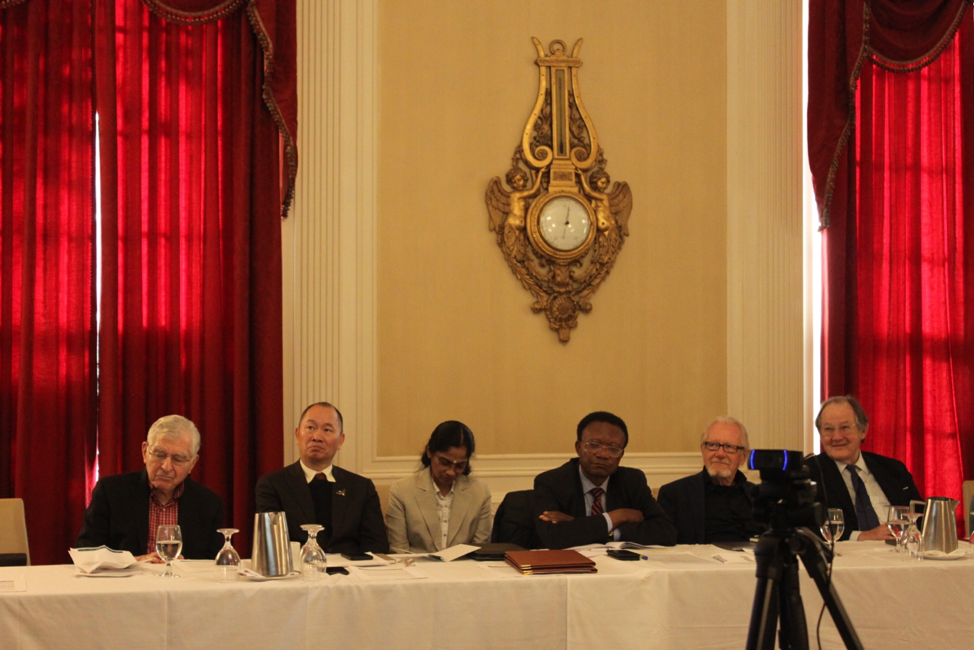
by Editor | Jan 2, 2024 | News
AIWS Angel, a groundbreaking super AI Assistant, is at the forefront of transforming the way humans interact with technology, aligning seamlessly with the principles of the AIWS Natural AI initiative. With its core components encompassing the Human Brain, Spiritual Values, Physical Computing, Interactive Interfaces linking the human brain and physical computing, and a sophisticated Display, AIWS Angel stands as the epitome of innovation and ethical design. Notably designed by Mr. Nguyen Anh Tuan and his team, AIWS Angel is on a mission to collect esteemed spiritual values from various faiths, including Christianity, Islam, Hinduism, Buddhism, Judaism, and more. This collaborative effort ensures that AIWS Angel embodies profound spiritual principles, making it a beacon of ethical and compassionate assistance. Step into the future of AI interaction with AIWS Angel, where cutting-edge technology harmonizes with esteemed spiritual values, ushering in a transformative and uplifting experience for individuals and communities alike.


by Editor | Jan 2, 2024 | Global Alliance for Digital Governance
Artificial intelligence has gone mainstream.
Long the stuff of science fiction and blue-sky research, AI technologies like the ChatGPT and Bard chatbots have become everyday tools used by millions of people. And yet, experts say, we’ve only seen a glimpse of what’s to come.
“AI has reached its iPhone moment,” said Lea Steinacker, chief innovation officer at startup ada Learning and author of a forthcoming book on artificial intelligence, referring to the introduction of Apple’s smartphone in 2007, which popularized mobile internet access on phones.
Similarly, “applications like ChatGPT and others have brought AI tools to end users,” Steinacker told DW. “And that will affect society as a whole.”
Will deepfakes help derail elections?
So-called “generative” AI programs now allow anyone to create convincing texts and images from scratch in a matter of seconds. This has made it easier and cheaper than ever to produce “deepfake” content, in which people appear to say or do things they never did.
As major elections approach in 2024, from the US presidential race to the European Parliament elections, experts have said we could see a surge in deepfakes aimed at swaying public opinion or inciting unrest ahead of a vote.
“Trust in the EU electoral process will critically depend on our capacity to rely on cybersecure infrastructures and on the integrity and availability of information,” warned Juhan Lepassaar, executive director of the EU’s cybersecurity agency, when his office released a threat report in mid-October.
How much of an impact deepfakes will have will also largely depend on the efforts of social media companies to combat them. Several platforms, such as Google’s YouTube and Meta’s Facebook and Instagram, have implemented policies to flag AI-generated content, and the coming year will be the first major test of whether they work.
Who owns AI-generated content?
To develop “generative” AI tools, companies train the underlying models by feeding them vast amounts of texts or images sourced from the internet. So far, they’ve used these resources without obtaining explicit consent from the original creators — writers, illustrators, or photographers.
But rights holders are fighting back against what they see as violations of their copyrights.
Recently, The New York Times announced it was suing OpenAI and Microsoft, the companies behind ChatGPT, accusing them of using millions of the newspaper’s articles. San Francisco-based OpenAI is also being sued by a group of prominent American novelists, including John Grisham and Jonathan Franzen, for using their works.
Several other lawsuits are pending. For example, the photo agency Getty Images is suing the AI company Stability AI, which is behind the Stable Diffusion image creation system, for analyzing its photos.
The first rulings in these cases could come in 2024 — and they could set precedents for how existing copyright laws and practices need to be updated for the age of AI.
Who holds the power over AI?
As AI technology becomes more sophisticated, it’s becoming harder and more expensive for companies to develop and train the underlying models. Digital rights activists have warned this development is concentrating more and more cutting-edge expertise in the hands of a few powerful companies.
“This concentration of power in terms of infrastructure, computing power and data in the hands of a few tech companies illustrates a long-standing problem in the tech space,” Fanny Hidvegi, Brussels-based director of European policy and advocacy at the nonprofit Access Now, told DW.
As the technology becomes an indispensable part of people’s lives, a few private companies will influence how AI will reshape society, she warned.
How to enforce AI laws?
Against this backdrop, experts agree that — just as cars need to be equipped with seatbelts — artificial intelligence technology needs to be governed by rules.
In December 2023, after years of negotiations,the EU agreed on its AI Act, the world’s first comprehensive set of specific laws for artificial intelligence.
Now, all eyes will be on regulators in Brussels to see if they walk the walk and enforce the new rules. It’s fair to expect heated discussions about whether and how the rules need to be adjusted.
“The devil is in the details,” said Lea Steinacker, “and in the EU, as in the US, we can expect drawn-out debates over the actual practicalities of these new laws.”
The original article was published in Deutsche Welle.
The BGF and AIWS continue to promote governance of AI with AIWS Roundtables and initiatives in 2024.

AI chatbot ChatGPT is considered the fastest-growing consumer internet app of all time
Image: Andreas Franke/picture alliance
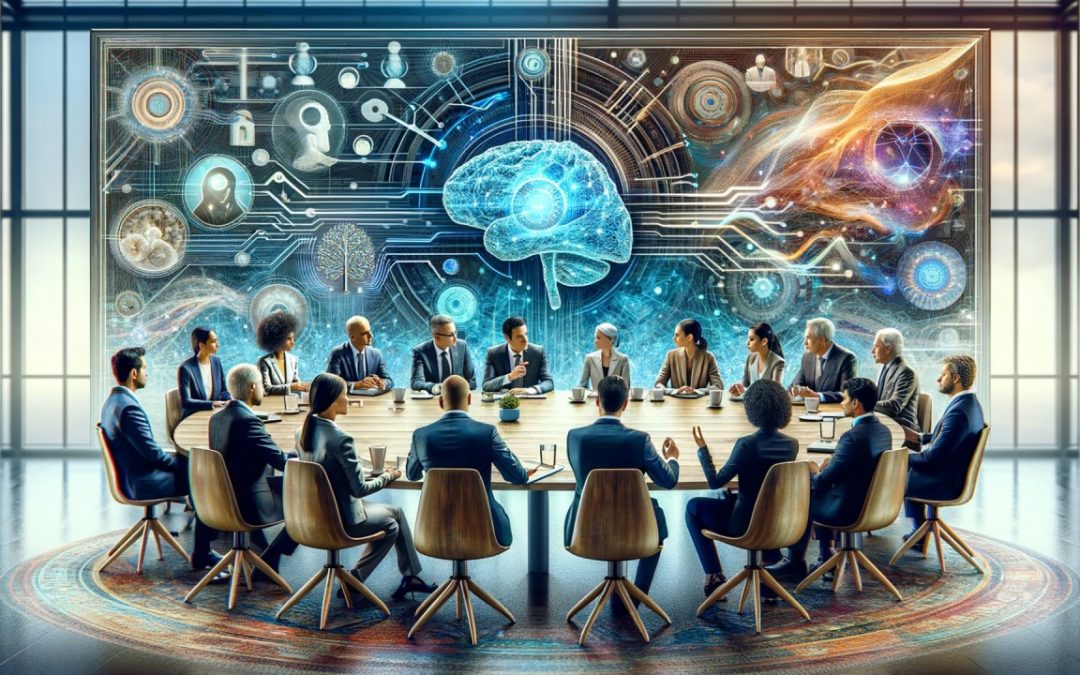
by Editor | Jan 2, 2024 | News
ChatGPT 4.0 and Ashit Vaswani who created the Transformer platform to develop ChatGPT
The AIWS Natural AI Initiative, titled “A Natural AI Based on the Science of Computational Physics, Biology, and Neuroscience: Policy and Societal Significance,” stands as a landmark event in the field of artificial intelligence in 2023. This initiative represents a pivotal moment where leading scientists, scholars, and policymakers come together to address the trajectory of AI development with a focus on foundational scientific principles.
In a paradigm-shifting endeavor, the Boston Global Forum heralded a new era in AI development on December 12, 2023, by hosting a roundtable that brought together luminaries from academia and industry. This gathering was not just a meeting of minds but a pivotal juncture marking the birth of a revolutionary approach to artificial intelligence: Natural AI. This concept, rooted in computational physics, biology, and neuroscience, was crystallized in a significant letter titled ‘A Natural AI Based on The Science of Computational Physics, Biology, and Neuroscience: Policy and Societal Significance,’ collectively endorsed by many attendees.
https://www.linkedin.com/pulse/converging-minds-charting-ethical-future-ai-boston-global-8bkxc/?trk=public_post_feed-article-content
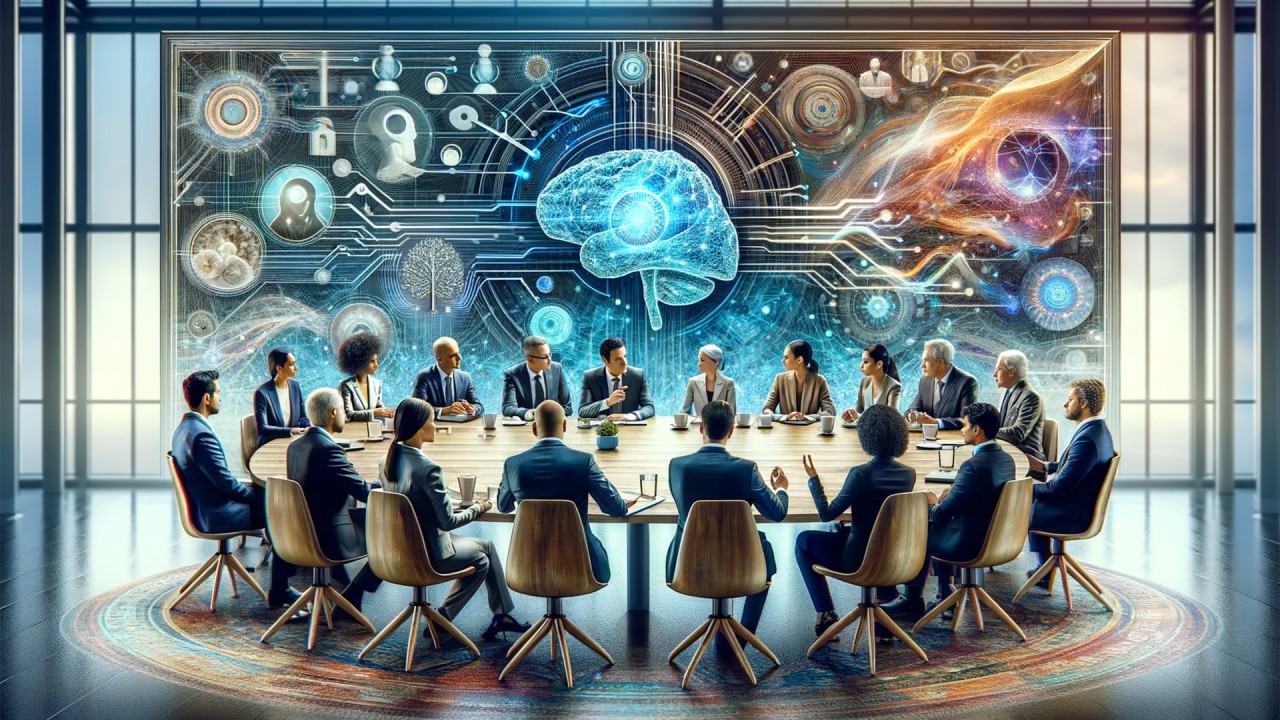
Artificial Intelligence Act: deal on comprehensive rules for trustworthy AI:
https://www.europarl.europa.eu/news/en/press-room/20231206IPR15699/artificial-intelligence-act-deal-on-comprehensive-rules-for-trustworthy-ai

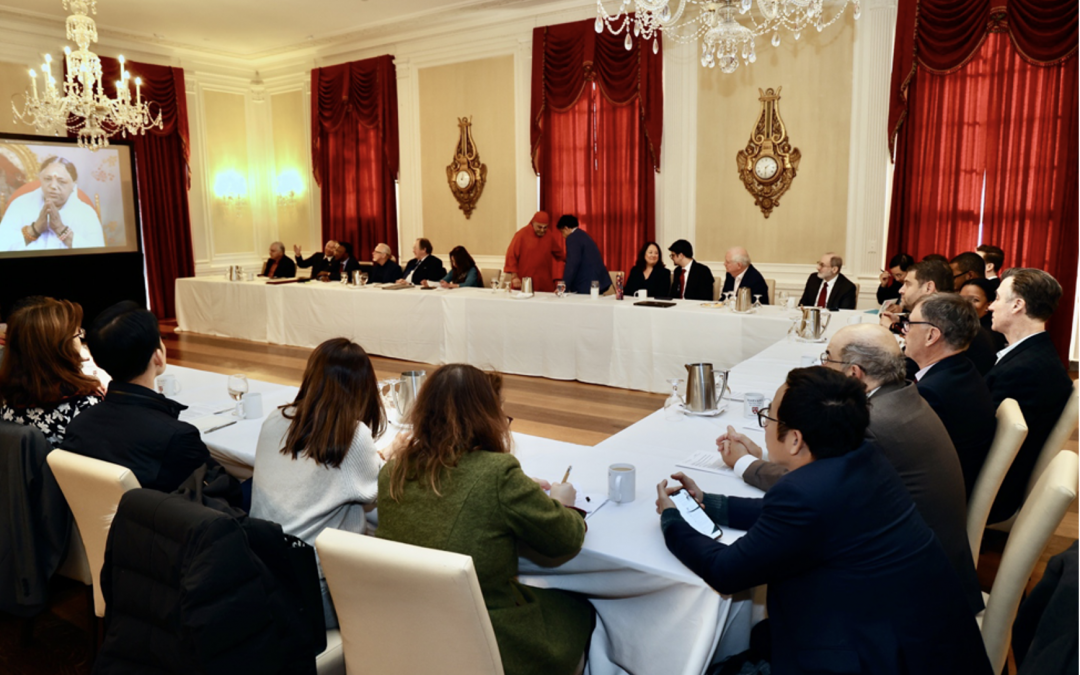
by Editor | Jan 2, 2024 | News
Welcome to the AIWS Roundtable on Natural AI and AIWS Angel in 2024—an ongoing monthly forum where distinguished thinkers, leaders, and innovators converge to delve into the realms of cutting-edge technology and profound human values. Each month, this roundtable serves as a vibrant platform for discussions centering around the intricacies of human brains, the infusion of spiritual values, the capabilities of physical computing, the interactive dynamics between human cognition and computing processes, and the meaningful display of results.
Our esteemed panelists bring diverse perspectives and expertise to the table, fostering rich conversations that explore the intersection of technology, spirituality, and human consciousness. As we navigate the evolving landscape of AI, we aim to uncover insights that contribute to the development of Natural AI and the revolutionary AIWS Angel. Join us in this intellectual journey as we unravel the mysteries and possibilities inherent in the convergence of human ingenuity and advanced computing.
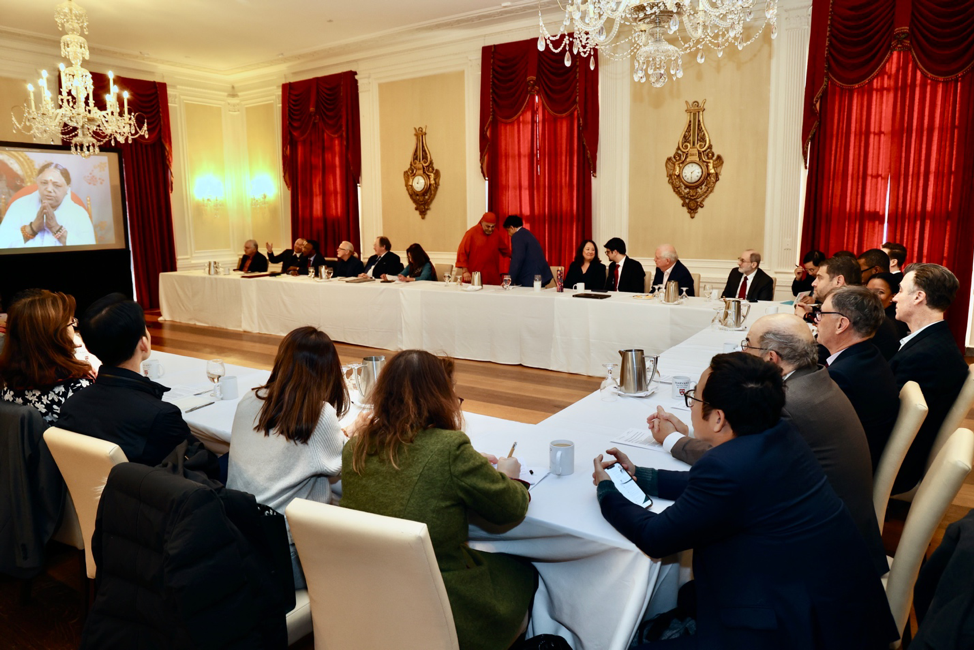
Amma spoke at the 90th Birthday Celebration of Governor Dukakis, November 2, 2023, at Harvard University Loeb House.

by Editor | Jan 2, 2024 | News
1/1/2024
As Global Enlightenment Leaders, we extend our heartfelt greetings for the year 2024, envisioning a world bathed in the radiance of peace, safety, and prosperity. In the spirit of global enlightenment, we stand united in our commitment to fostering global collaboration, transcending boundaries, and embracing the principles of ethical and responsible leadership. May this year bring forth transformative initiatives, including the building of the AIWS Natural Initiative with AIWS Angel, that pave the way for a harmonious coexistence, where the values of compassion, understanding, and innovation guide our collective journey. Together, let us illuminate the path to a brighter future, where the pursuit of knowledge and wisdom leads to a world that cherishes the well-being of all its inhabitants.
Boston Global Forum Global Enlightenment Leaders


by Editor | Dec 26, 2023 | News
Minh Nguyen is the Editor of the Boston Global Forum and a Shinzo Abe Initiative Fellow. She writes the Four Pillars column in the BGF Weekly newsletter.
With the recent dangers of shipping in the Red Sea, the US announced Operation Prosperity Guardian, in cooperation with ten other countries, in order to secure shipping lanes through the Red Sea and the Gulf of Aden, one of the most vital lanes, especially for Europe-Asia. This comes in light of Houthi attacks on civilian ships. Operation Prosperity Guardian includes the US, the UK, Canada, Bahrain, Canada, Denmark, Greece, the Netherlands, Norway, and Seychelles. These are two Pillars who are participating in the operation (the US and EU-UK). There are also around ten more states participating, some rumored to be Saudi Arabia and Egypt, but they remain anonymous in part for fear of domestic public opinion. In part due to these efforts, shipping giant Maersk is to restart shipping through the region. The Indian navy has also deployed warships in response to attacks on merchant vessels. In the region, the US has also been battling other Iranian proxies, such as in Iraq.
The US signed a new defense spending bill, the National Defense Authorization Act, into law. It aims to strengthen American positions in the Indo-Pacific, and some minor aid to Ukraine and Israel.
In the Asia-Pacific, there is still a stark reminder of the threat to global security that looms large. In the APEC Summit earlier this year in San Francisco, China’s Xi Jinping stated to Biden that China still plans on reunifying with Taiwan. It is a cornerstone of Xi’s policy that should not be forgotten.

The guided-missile destroyer USS Mason (DDG 87) sails alongside the Japanese Murasame-class destroyer Akebono (DD 108) in the Gulf of Aden Nov. 25, 2023. Sailors from both ships trained on visit, board, search and seizure (VBSS) procedures, helicopter operations, and division tactic exercises, increasing interoperability between the two allies. DAs part of the Dwight D. Eisenhower Carrier Strike Group (IKECSG), the Mason is deployed to the U.S. 5th Fleet area of operations to support maritime security and stability in the Middle East. (U.S. Navy Photo by Mass Communication Specialist 3rd Class Samantha Alaman)

by Editor | Dec 26, 2023 | News
BGF Framework for Global Governance of AI
Honoring Amma with 2023 World Leader for Peace and Security Award
“How to Govern AI In an Age of Global Tension,” BGF Special Report for the Riga Conference 2023
AIWS Natural AI initiative
Building Spiritual Values for AI World Society
AI World Society recognized at C20-G20 Summit India 2023
90th Birthday of Governor Michael Dukakis and the book “From the Massachusetts Miracle to the Age of Global Enlightenment”
Shinzo Abe Initiative Conference in Tokyo April 5, 2023 with the report “Japan’s Prominence in the new Age of Global Enlightenment”
Honored Japanese Minister Sanae Takaichi with 2023 World Leader in AIWS Award
Establishing the Global Enlightenment Community of AIWS City

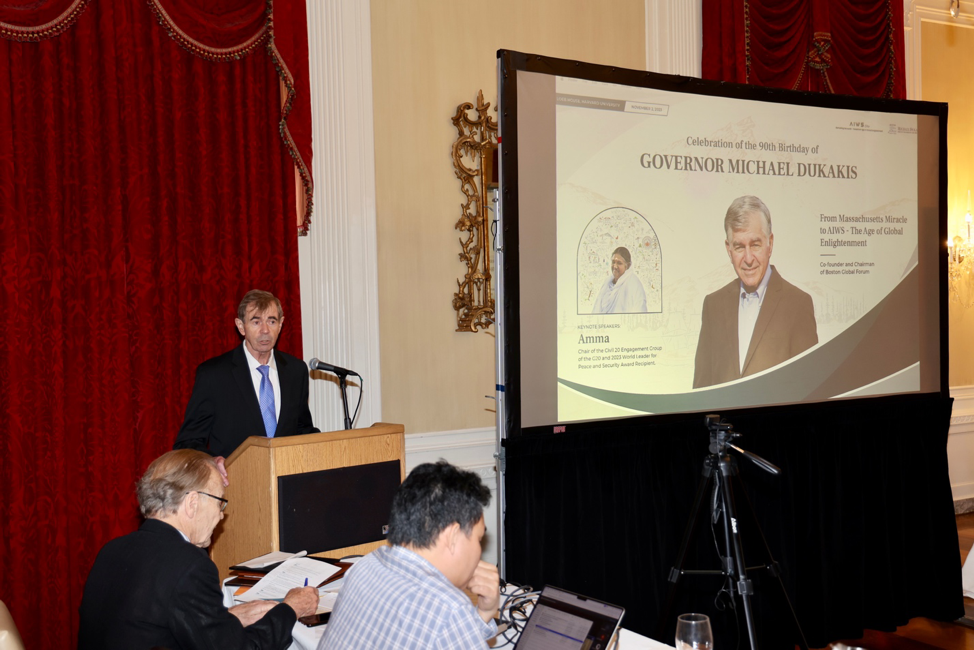


by Editor | Dec 26, 2023 | Global Alliance for Digital Governance
Thomas Kehler, a key member of the AIWS Natural AI Initiative:
Why we need to look to nature for a path forward
Earlier this week, the Boston Global Forum assembled a group of business, academic, and government leaders, calling for “A Natural AI Based on The Science of Computational Physics, Biology, and Neuroscience: Policy and Societal Significance.” I was a speaker at that event. The event resulted from discussions on finding a path forward given this year of AI success.
The accomplishments of AI in 2023 were so substantial that, for many, it is just a matter of pouring in money, data, and GPUs from this point forward. For many others, it is a destructive force to be regulated – even halted.
The power and productivity potential of generative AI is unparalleled in the history of AI. Pre-trained transformer models combined with the recognition that nearly all historical AI research areas can be mapped into a language encoding and decoding format fueled an explosion in results. This power is highly beneficial but also potentially destructive.
The success of today’s AI models is grounded in the mathematical apparatus of statistical physics. Specifically, deep learning neural nets derive from the physics of cooperative phenomena (magnetism and the flocking patterns of birds share the same math as deep learning). Principles from physics are foundational to today’s AI models. However, we are using the immense power of statistical thermodynamics without using physicists’ techniques to bind the generative power of solutions in real-world constraints. The call to ground AI research in development in a First Principles AI is a clear next step.
Pioneers in brain imaging and computational biology have made substantial leaps forward in linking mechanisms of perception and the physics of living systems to a fundamental principle of nature – homeostasis. The Free Energy Principle and the computational mechanism of Active Inference are based on the work of Karl Friston and other pioneers in brain science and computational biology. This work is tied to the profound insight that the principle of homeostasis applies to the physics of life and is an emerging general theory of the self-organizing principles of natural intelligence. Founders of the work in the Free Energy Principle and Active Inference are signatories to the attached letter.
Those who signed the attached letter believe the appropriate response to the tremendous advances in AI is to ground it in natural law. Generative AI must be grounded in cause and effect rather than filtered statistical possibilities.
The road ahead will benefit humanity and the preservation of biological lifeforms, provided we stay true to what brought us to this point of technological success. It rests upon our collective shoulders to bond to secure that road ahead.
Please take a look at the attached letter. If you wish to learn more or join the cause, send me an email ([email protected]) or contact [email protected]
https://www.linkedin.com/pulse/grounding-ai-physics-natural-law-first-principles-thomas-kehler-uwrjc%3FtrackingId=uamUq0laTfS0bqDK14hFCQ%253D%253D/?trackingId=uamUq0laTfS0bqDK14hFCQ%3D%3D


by Editor | Dec 26, 2023 | News
The AIWS Natural AI Initiative, titled “A Natural AI Based on the Science of Computational Physics, Biology, and Neuroscience: Policy and Societal Significance,” stands as a landmark event in the field of artificial intelligence in 2023. This initiative represents a pivotal moment where leading scientists, scholars, and policymakers come together to address the trajectory of AI development with a focus on foundational scientific principles.
Focus on Natural AI: The term “Natural AI” signifies an approach that aligns AI systems with the natural processes observed in physics, biology, and the human brain. This shift in perspective aims to create AI technologies that are not only powerful and efficient but also compatible with the innate intelligence found in living systems.
Historical Significance: The AIWS Natural AI Initiative is recognized as a historical event due to its emphasis on grounding artificial intelligence in the principles of computational physics, biology, and neuroscience. This approach marks a departure from conventional AI development paradigms, acknowledging the importance of aligning AI technologies with natural sciences.

















